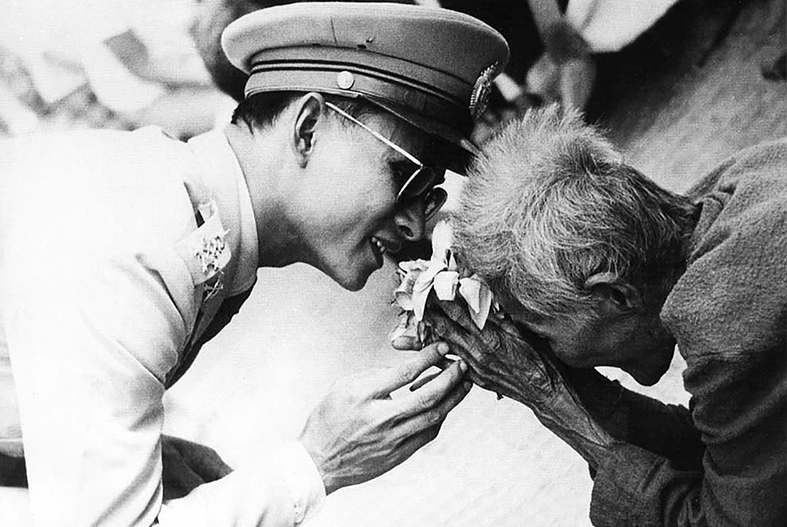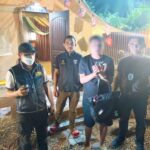His Majesty King Bhumibol Adulyadej The Great has long praised the “Sufficiency Economy” as a potent and valuable philosophy.
The late King’s philosophy doesn’t aim to make the kingdom a ‘tiger’, but aims to help people support themselves. The sufficiency economy philosophy is one of his most famous and enduring legacies.
Even the United Nations has recognised that the economic sufficiency advocated by the late King aligns with and leads to the sustainable development of the world according to the UN’s Sustainable Development Goals (SDGs).
The term “sufficiency economy” was given further prominence when the King addressed an audience of well-wishers on Dec 4, 1997 — on the eve of his 70th birthday — in the wake of a major economic crisis hitting Thailand and many other countries in the region.
Before the crisis, Thailand adopted a mainstream development approach aimed at achieving high economic growth. The country vigorously pursued market-and-export-oriented policies to become a newly industrialised country (NIC) following in the footsteps of Hong Kong, Singapore, South Korea and Taiwan, the so-called four Asian Tigers.
In his speech, King Bhumibol Adulyadej said it was not important for Thailand to become an economic tiger. What mattered was Thais should live a life that would give them enough to eat, so they were capable of supporting themselves financially.
“Being a tiger is not important. The important thing is for us to have a sufficient economy. A sufficient economy means to have enough to support ourselves,” he said.
The King continued to stress the importance of the sufficiency economy concept on many occasions and it has since gained currency and is regarded as an alternative development framework for the country.
Some may perceive the sufficiency of the economy as a matter of sustainability and moderation. The concept actually accommodates a changing world and establishes resilience at both micro and macro levels.
Although the late King introduced the philosophy decades ago, many still do not fully understand its profound implications, leading to misconceptions.
Dr Sumeth Tantivejjakul, secretary-general of the Chaipattana Foundation, said the late King gave very clear and concise interpretation of the sufficiency economy as follows:
“Sufficiency economy is the principle that can be applied at all levels, from individual through to the community and development of the nation. The philosophy helps build the economic foundations to keep up with globalization. Sufficiency implies the state of being in moderation, being reasonable, and having self-immunity in managing internal and external risks.
“Prudence also plays a vital role in creating good planning and preparation. The two accompanying conditions, knowledge and moral principle, serve as a strong foundation of morality. Government officers, theorists, and business owners should possess the qualities of being honest and having strong ethical principles.
“All of us should lead our lives with prudence, wisdom, and morality to create balance and be ready to manage rapid changes that can happen widely in the form of social, materialistic, environmental, and cultural values.”
This vision of His Majesty King Bhumibol can be applied effectively to the modern world. Dr Sumeth said the late King said sufficiency consists of being moderate, reasonable, and self-immune, accompanied by wisdom and morality.
“His Majesty warned about the rapid changes in the world since 1999, emphasizing the need to ‘change before being changed’. If we change at a normal pace, we merely keep up. However, if we change slower than the world, we face disruption,” Dr Sumeth told the recent Sustainability Expo 2023 event.
“We must ask ourselves: have we taken action by 2023? The world is undergoing significant changes, especially concerning concerns about global warming and the destruction of natural resources.”
Dr Sumeth expanded on the concept of sufficiency, saying that it means having sufficient wealth, physical and intellectual resources. Each individual and organization must know their limits and not exceed them. The capital and resources of each individual varies, and each person’s capability is not the same.
“If we act beyond our means or beyond our capacity, imbalances will occur. The same principle applies at the national level,” said Dr Sumeth.
Once people understand their own limitations, His Majesty the late King emphasised the importance of rationality, prudence and wisdom. Without these, greed and craving can lead to mistakes and failures. Self-immunity involves managing risks effectively.
“Everything people do involves risks and every step in life carries risks. Therefore, prudence, good planning, and preparation are essential. Lastly, being honest and having strong ethical principles are paramount.”
“His Majesty simplified it — think before you act, assess before you proceed. Look at your resources and capability first. Reason without greed. Protect yourself from envy at all times. Be cautious and aware. The ultimate results, these three words might align with sustainability: balance, stability, and sustainability,” said Dr Sumeth. v
POST CREDIT Bangkok Post




